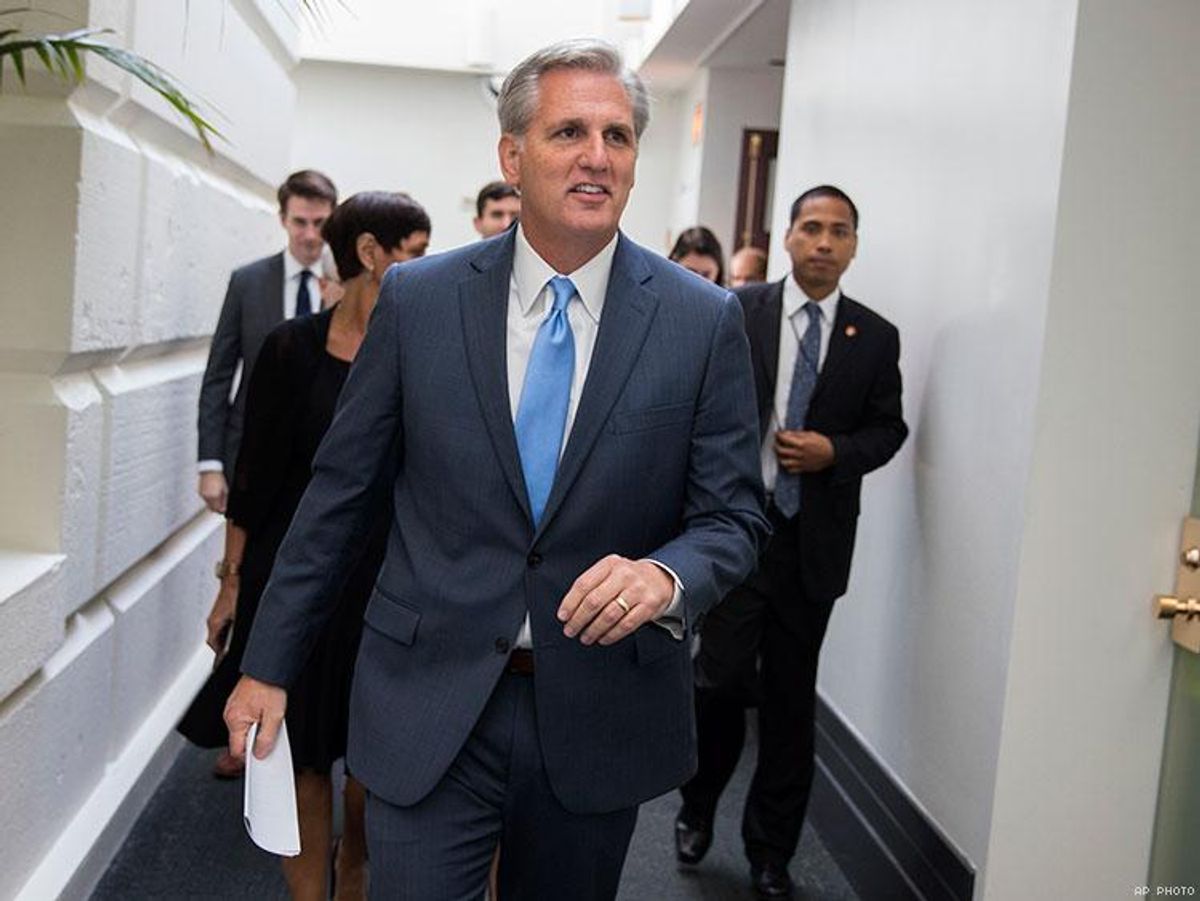Members of the House of Representatives just announced that current House Majority Leader Kevin McCarthy has taken his name out of the running for the next speaker.
House Republicans were gathering to vote on their choice to replace John Boehner when the unexpected news hit the House floor, according to ABC News.
Boehner immediately postponed the election, which was to pit Rep. McCarthy of California against Rep. Jason Chaffetz of Utah and Daniel Webster of Florida.
In the press conference announcing his withdrawal, McCarthy said the race needs a "fresh face" for Republicans to unite behind, The New York Times reports. He also said he would stay on as majority leader.
Even though he had been well-liked by House conservatives and is deeply conservative himself, McCarthy apparently lacked the trust of some of the party's far right. Forty House members endorsed Webster yesterday, and various news reports say McCarthy appeared unlikely to win the 218 votes he would need to become speaker. The nomination goes to the full House after the Republicans make their choice.
McCarthy was likely hurt by comments he made recently about the investigation into the killings of U.S. diplomats in Benghazi, Libya, in 2012, appearing to say the Republican-led inquiry was a political strategy to hurt the presidential campaign of Democrat Hillary Clinton, who was Secretary of State when the attack occurred.
"Everybody thought Hillary Clinton was unbeatable, right?" McCarthy told Fox news host Sean Hannity last week. "But we put together a Benghazi special committee, a select committee. What are her numbers today? Her numbers are dropping. Why? Because she's untrustable. But no one would have known any of that had happened, had we not fought."
A few days later, he was back on Fox backtracking. "This committee was set up for one sole purpose, to find the truth on behalf of families for four dead Americans," McCarthy told Bret Baier. "Now, I did not imply in any way that that work is political, of course it is not. Look at the way they have carried themselves out."
McCarthy, a four-term congressman from Bakersfield, Calif., one of the deep blue state's more conservative areas, has a record of voting against LGBT rights. He has generally been circumspect in discussing LGBT issues, but his voting record shows a solid zero on every Human Rights Campaign Congressional Scorecard since he took office in 2007.
Whoever eventually becomes speaker is likely to be an equally staunch opponent of LGBT equality. Both Webster and Chaffetz have anti-LGBT records, and so do potential candidates being mentioned in the wake of McCarthy's withdrawal, such as Jim Jordan of Ohio and Trey Gowdy of South Carolina. Some Republicans are also suggesting former vice-presidential candidate Paul Ryan, who continues to say he doesn't want the job. Read about them here.
Rep. Charlie Dent of Pennsylvania, a moderate Republican who supported marriage equality even before June's Supreme Court ruling, said on CNN today that Republicans may have to form a bipartisan coalition with Democrats to choose the next speaker (the speaker is drawn from the majority party), and he denounced the "rejectionist wing" of the GOP. However, that wing appears to have the upper hand.
This is a developing story. Keep checking in for updates.


















































































Fans thirsting over Chris Colfer's sexy new muscles for Coachella